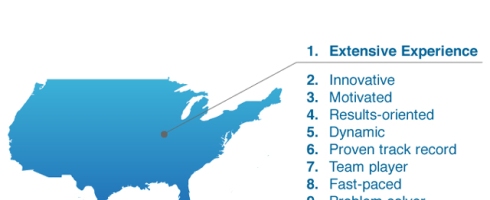Recently, I’ve received an increasing number of emails from “business people” looking for advice on how to get a job at a startup. Most have the same story, “I could go work at a big company, but want to join a startup. One problem: I don’t know where to start the process.” Everyone knows how to get their foot in the door at an investment bank – just apply online. Less clear is the path to joining a startup, especially for those lacking technical skills.
What I usually tell people is that it’s not as scary as it sounds, and it is not as difficult provided you are passionate about your goal. A few pieces of advice on how to get a job at a startup if you aren’t a developer:
1. Know the tech landscape better than anybody else – Pick a few verticals and drill down. Know the names and histories of companies in that space and be up to date on what they do and why they do it. A good place to start ishere. Separate yourself by also learning tech history – macro trends are more clear in retrospect. There are a bunch of good tech history books in this list. For me, twitter is the best source of news and information. Follow people who are respected in the startup world, and read what they are reading. I’ve found that Twitter is a bit like Wikipedia in the way it pulls you in. If you follow an interesting person you are bound to find 50 more solely by seeing who they interact with.
2. Form an opinion and start a blog – Knowing the facts is a requisite to forming an opinion. Just memorizing the details and not being able to articulate an opinion is pretty worthless. So, make sure you know not only that a prominent startup recently released a new feature, but be able to comment on whether, given the market, this release was a good strategic move. Product-wise, what did you like about the new feature? What did you hate? How will the new feature affect the direction of the company? Write these thoughts down on twitter and on your blog (even if nobody is listening now, it will give you something to point to when you do reach out to a company).
3. Be familiar with the startup culture – Each sport, industry, or college has a unique culture, with its own lingo, success stories, and taboos. Startup culture is no different. Be familiar with all of these elements. A nice place to start is Paul Graham’s Hackers and Painters. Aside from being a thought-provoking book, it offers deep insights into the startup / hacker culture. I’d also recommend hanging out on tech-heavy communities like Hacker News orReddit. Observe how people interact. Pay close attention to which articles and comments get voted up or down. It will go a long way in figuring out what the startup culture sees as valuable. Decide if these values mesh with what you see as important.
4. Offer a concrete skill – If you were to interview at a startup would you describe yourself as someone who is “willing to do anything?” That probably isn’t the best way to pitch yourself. Though flexibility is a great quality, it is assumed of all good candidates. Ditto for an “eagerness to learn.” To set yourself apart, do some research into the position and talk about the specifics of why you’d be good for that role. If it is an analytics role, read some books on online analytics. If it’s more of a product role, build something! If it’s a business development role, come in with a list of the top 10 companies you think would be promising partners for company. I learned to be proficient in photoshop so that I could create quick mockups that would inspire potential partners. Whatever that skill is, go learn it (hint: you’ll likely have to teach it to yourself). My point is to put some thought into how you can prove passion and commitment.
5. Take an internship – Startups will often bring on someone as a consultant or intern before hiring them. It’s kind of like a test drive. I’d say the hardest part is getting your foot in the door. Once you do that, it’s up to you to prove your value. Check your ego at the door and don’t worry about how all your friends are full-time employees and you are a lowly intern.
6. Send cold emails – Contrary to popular belief, they work. (Of course, try to make these emails meaningful, not just templates). The best piece of advice I can give is to get the conversation started early.
I’d start by emailing a few entry-level employees at some of the companies you find most interesting. Find their email addresses online and send them a quick note along with your resume – you’d be surprised how few people looking for jobs in startups even take the time to do this. If you can’t find their email then send them a note on twitter or comment on their blog.
The reason most startups will be respond to your inquiry is that although they aren’t always hiring, startups are always looking to meet exceptional people. In a fast-growing company, hiring needs pop up quickly and the faster they can fill the job, the less time they spend away from product-building. Getting to know potential employees before the need arises is key to finding the best people and filling roles fast.
I’ve heard of this referred to as a “bench” of potential hires (hat tip to Brian Chesky of Airbnb who is the first person I heard this term from). It describes people the company knows and would love to hire given the need. When the need arises, the company calls on its “bench.” Your goal should be to get on the “bench” of several startups, so that when an opportunity opens, they will think of you. This is particularly true for college seniors.
7. Understand that most people get non-technical jobs at startups through their network, not job postings – I once heard a great piece of advice: “Any startup job you find on a job board will be one you don’t want.” Many startups won’t post business development roles because they generate overwhelming inbound interest, often from unqualified candidates. Rather, they’ll let people in their professional network know they are looking for someone, and rely on referrals to drive high quality candidates. Again, get to know people by reaching out via email, twitter, or by commenting on their blog. If someone you contact tells you they aren’t hiring, ask if they’d mind referring you to a startup they know that is.
Final thought: I don’t aim to convince people to choose a startup over Wall Street – only to let those interested know that the option is there and it is not as daunting as it may appear. Hopefully the above pointers will help demystify the process for those eager to get into the startup world.
Tags: ENTREPRENEURS, featured, hiring, job search, jobs, small business, STARTUPS, wall street











